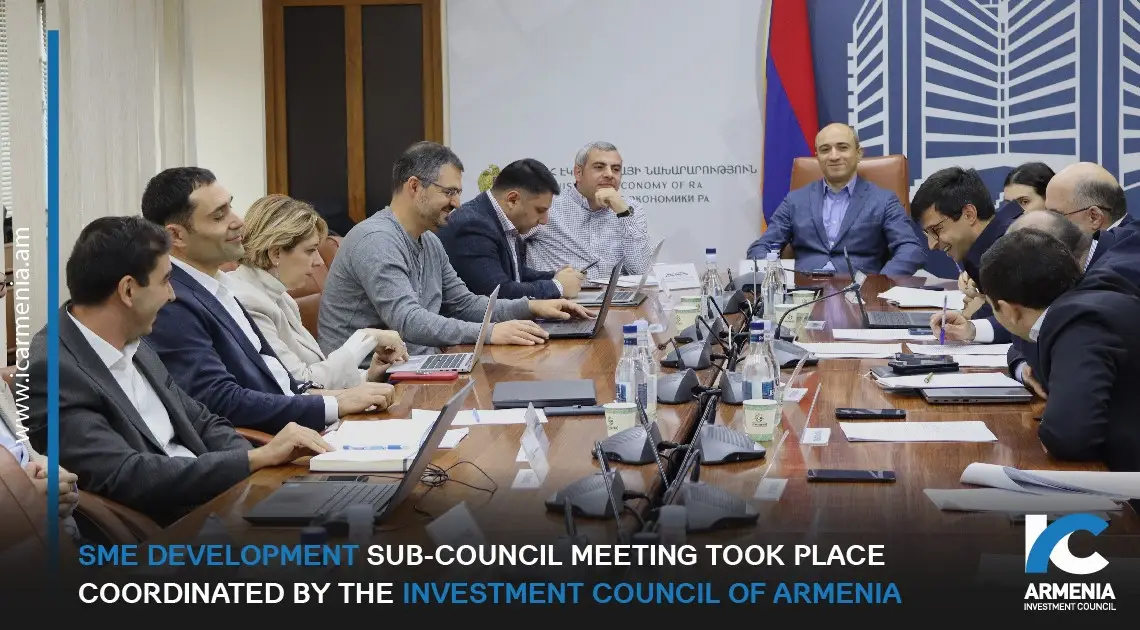24th November 2023
SME Development Sub-Council 21st meeting
Corporate
Sub-Council

On November 24, the SME Sub-Council convened for its regular session, presided over by Raphael Gevorgyan, the Deputy Minister of Economy of the Republic of Armenia, and coordinated by the Investment Council of Armenia.
The session focused on two key agenda items. Firstly, discussions centered on the proposed legal regulations governing the introduction of convertible loan agreements for LLC shares or Joint Stock Company shares. The second agenda item involved reforming regulations related to the write-off of bad debts.
As of December 31, 2022, among the 82,236 limited liability companies registered in the Republic of Armenia, many rely on debt instruments, particularly loans from participants.
Aram Khachatryan, a representative of the Enterprise Incubator Foundation, highlighted that participants often express the desire to convert their financial investments into company shares in the event of an improvement in the company's financial situation. Current laws, however, do not provide for such a mechanism.
Hayk Malkhasyan, legal advisor of the Investment Council of Armenia, emphasized the need for legal amendments to the RA Civil Code, as well as the laws governing Limited Liability Companies and Joint Stock Companies. The proposed amendments aim to define the concept of convertible loan agreements and outline their main conditions, drawing on established international business practices.
Addressing the issue of bad debts, Haykaz Fanyan, director of the Armenian Center for Socio-Economic Studies, provided insights into the current sectoral situation. Currently, if a business owner, subject to profit tax, decides to write off a tax invoice and the partner fails to settle it within the specified timeframe, a set process comes into play:
- For amounts up to 100,000 AMD, the business owner has the option to reduce the profit tax base by that specific amount, exempting them from paying profit tax.
- In cases where the total amount exceeds AMD 100,000, a predetermined percentage (up to 75%) of that sum should be deducted from the profit tax base (from the profit tax payable) within one year.
After the lapse of one year, any outstanding debt exceeding AMD 100,000 is deemed bad debt. This classification is contingent on the existence of a legally effective judicial act affirming the business owner's application to the court, and subsequent court approval or rejection of the request for fund confiscation. In the absence of such a legal directive, the outstanding amount becomes subject to taxation.
Davit Aghajanyan, Senior Economist of the Investment Council of Armenia, presented new regulations proposing revisions to the existing framework. The proposal suggests adjusting the threshold for court application from obligations not exceeding 100,000 AMD to obligations not exceeding 300,000 AMD, considering the impact of inflation and court costs.
The draft legislative amendments, developed by the Investment Council of Armenia, were presented during the SME Sub-Council session and will undergo further discussions under the guidance of the Deputy Prime Minister, facilitated by the Ministry of Economy of the Republic of Armenia.
Delivered by the EBRD in collcaboration with the UK Government's Good Governance Fund.